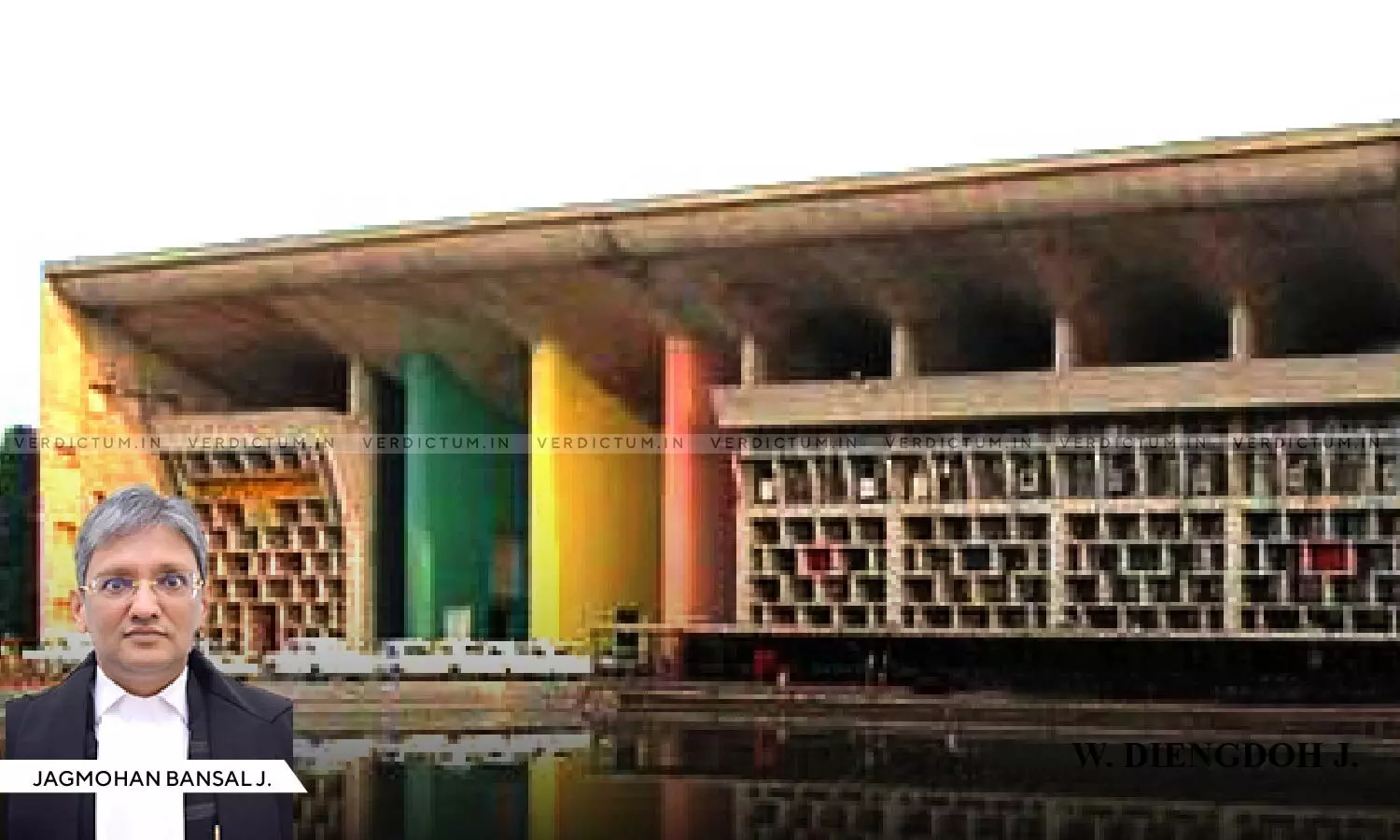
Denial Of Passport Not Only Amounts To Violation Of Articles 14 & 21 But Also Freedom Of Speech, Business & Trade Under Article 19: P&H High Court
 |
|The Punjab and Haryana High Court has held that the denial of a passport not only amounts to the violation of fundaments rights under Articles 14 and 21 of the Constitution but also freedom of speech, business, and trade as per Article 19(1)(a) and (g) unless prescribed law procedure is followed.
A Single Bench of Justice Jagmohan Bansal said, “Youngsters are getting life time golden opportunities to work abroad. If a young boy/girl who has got life time opportunity to work abroad is mechanically denied passport, no one would be able to compensate and it would be travesty of justice. Thus, denial of passport not only amounts to violation of fundamental rights guaranteed by Article 14 & 21 but also freedom of speech, business and trade contemplated by Article 19(1)(a) and (g) of the Constitution unless and until procedure prescribed by law is followed.”
The Bench noted that the authorities while denying the passport consider the period of conviction and the period spent from the date of conviction, however, the question of involvement of moral turpitude in the offence is not examined and hence, the authorities must consider such an aspect.
Advocate Sarbjit Singh appeared on behalf of the petitioner while Senior Panel Counsel Ankur Sharma and Amicus Curiae Reeta Kohli assisted by Advocate Vandana Kohli appeared on behalf of the respondents.
Factual Background -
The petitioner through an instant petition sought direction to the respondents to renew his passport which got expired in 2015. An FIR under the NDPS Act (Narcotic Drugs and Psychotropic Substances Act, 1985) came to be registered against him and the trial court convicted him and sentenced him to imprisonment of 10 years. The petitioner assailing the judgment of conviction and order of sentence preferred an appeal before the High Court which came to be admitted.
The sentence of the petitioner came to be suspended and he moved an application seeking renewal of his passport. The petitioner was informed that there was an adverse police report and his application came to be closed. The petitioner, in the pending appeal, preferred an application before the High Court, seeking direction to respondents to renew his passport which came to be dismissed observing that relief sought by him was civil in nature and in case of denial of his application, he has a remedy to file civil writ petition.
The High Court in view of the facts and circumstances of the case observed, “Matter further needs to be examined in the light of changed social, scientific and economic scenario vis a vis human and fundamental rights. A Constitution Bench in Maneka Gandhi (supra), more than 4 decades back, though held that right to travel is not part of fundamental rights adumbrated in Article 19(1) of the Constitution, however, contemplated various examples where denial of passport would amount to violation of right to freedom of speech or freedom of business contemplated by Article 19(1) of the Constitution.”
The question for consideration before the Court was whether clause (f) of Section 6(2) of the Passport Act, 1967 is applicable to an applicant whose criminal trial has already concluded and whose appeal is pending before the Appellate court.
The Court said, “With the advancement of technology, improvement of means of communication, globalization of economy, opening of economy for foreign investors, improvement of financial status of public at large, attraction to study and thereafter work out of country, increase in volume of international trade, availability of flights, unprecedent increase in the number of tourists across the world; travelling to abroad has substantially increased and it has become part of life. Presence of number of persons at one point of time at airports and daily international flights speak itself. Umpteen number of persons are travelling abroad for the sake of business or employment.”
The Court added that if these persons are mechanically denied passports or permission to visit abroad, without allaying fear to flee from justice, it would not only deprive them of their right to earn livelihood but also violate their fundamental right to freedom of business and profession, guaranteed by Article 19(1)(g) of the Constitution.
The Court concluded and held, “Clause (f) of Section 6(2) of Passport Act, 1967 is inapplicable to post conviction or post acquittal proceedings. … As soon as a person is convicted or acquitted, he would be governed by Clause (e) of Section 6(2) of 1967 Act. … High Court is not criminal court in terms of Section 6(2)(f) of the 1967 Act.”
Accordingly, the Court allowed the pleas and directed the passport authorities falling within its jurisdiction to consider its observations and findings before processing pending and subsequent applications.
Cause Title- Mohan Lal @ Mohna v. Union of India and Others (Neutral Citation: 2023:PHHC:088633)